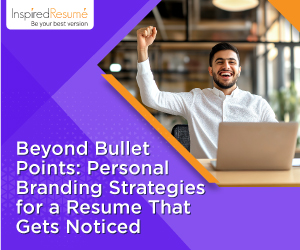No matter what position you're applying for — whether it's your first job out of university, or you're an experienced professional — condensing your accomplishments into one single document can be intimidating. But if you're willing to make a change in your career, a polished and updated resume is the one thing you’ll need!
Well, let’s not debate the fact that writing a resume for an experienced professional is tougher than for a fresher. You've likely held several jobs and responsibilities all these years, working your way up and maybe trying something new after years of experience. The point is, at the senior executive level, there will be competition for you as people from other companies would be coming in too. Your resume and your cover letter need to be top-notch to be remarkable.

Continue reading to learn about 10 points to make your Senior Executive resume impressive.
1. Add your credentials in the headline
The headline is typically the first place recruiters will look, so adding details on the top is a must. Articulate your experience in a way that stands out amidst a slew of resumes the recruiting manager will get to see. Write your credentials on the top, especially the ones that match the position you want to apply for.
2. Skills and experience
For your senior executive resume to stand out among your peers, make sure your biggest skills — also referred to as “core competencies” or “areas of expertise” — are highlighted in the resume.
Also, try mentioning skills that directly correlate with the position you're eyeing on. Go through the skills mentioned in the job description, and customize your resume accordingly. If you execute this rightly, this can complement your executive summary or career summary.
3. Awards and achievements
If you're a senior-level professional, you are likely to have a long list of accomplishments to select from. But this doesn't mean you have to mention all the roles and awards you’ve scored. While a separate section for awards and achievements isn’t the most common thing on a resume, it's a great way to show talent acquisitions and hiring managers what you're most proud of.
4. Put limelight on recent work experience
The most common advice you will get is to frame your resume in chronological format, as it shows your career graph through the years. Spend some time detailing every work achievement, job role you are handling, with your current or most recent job. This rule applies even if you haven't been at your current job for very long — the only exception is if your current role is not related to your career goals or executive summary.
Also read: How to write a compelling resume headline?
5. Quantify your work history
In the world of resumes and interviews, numbers are a big selling point. This is extremely important as a senior-level professional, as you're handling things like budgets, department goals, or people in teams. Always quantify your achievements.
6. Only relevant experience
After a certain number of years in the industry, you've built up quite the history of companies, positions, and responsibilities. How will you fit it all in? Honestly, you don't need to. Instead, restrict your resume to experience garnered in the last 10 years, give or take.
7. Executives can have a two-page resume
I know this can come as a shocker. It's a false belief that resumes should be restricted to one page! Since you’ve years of experience, you have a lot to tell the potential employer. Just don’t get too lengthy, else hiring managers can get bored while reading. Two pages is a great resume length to showcase your work history and, more importantly, your accomplishments (quantified, if possible).
Your older work experience can be in the latter section of the resume. Force yourself to edit the resume with the most relevant information required for the job you are applying for. Try to think from the recruiter's point of view, and go line-by-line through your executive resume.
8. Move your education to the end of the resume
When you apply as a fresher, your degree is often one of your biggest selling points. A few years into your career, the focus should be your work experience and your skills. Push back your education details to the end of the resume, except if there’s any specialized degree you did recently.
9. Remove dates
It’s not important to get into too much detail for your experience that’s older than 10-12 years unless there’s something unique or spectacular you did that is relevant even today. If you feel like including relevant early work, if it showcases the way your career has evolved, that's great. But keep the dates omitted.
10. Resume review
A good resume needs to tick off a lot of checkmarks in order to be impressive. And it is always better to get a different set of eyes to make a fair judgment of your resume. You can always have a peer or someone senior take a look at your resume. If you wish to get an expert opinion, upload your resume on InspiredResume and get a detailed analysis of your document in a personalized mail - that too absolutely free of cost. Take this opportunity to get a professional review of your resume before jumping into the job market again.




